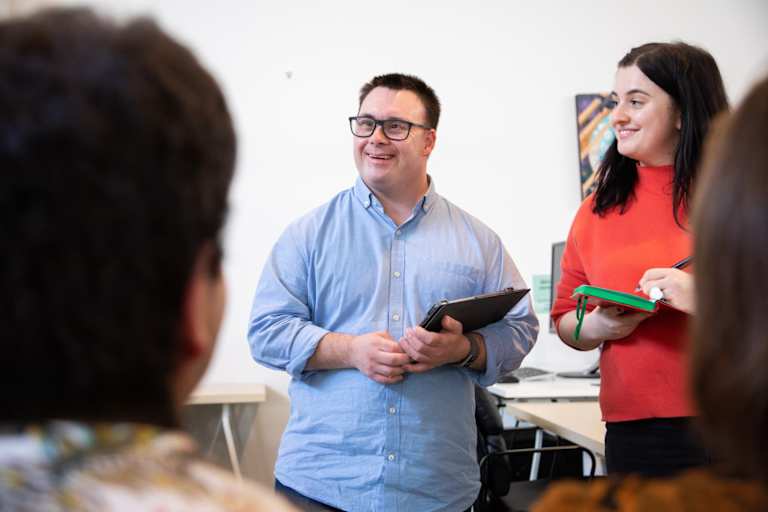How to Become an Licensed Counselor in South Carolina
- Licensure Requirements
- How Long Does it Take?
- Out-of-State Licensing
- Licensing Renewal
- Salary Expectations
- Professional Organizations
- FAQ
The growing demand for mental health services in South Carolina has contributed to a promising job outlook for licensed counselors. Check out our guide to learn about the South Carolina counseling license process, education and experience requirements for each license type, and salary potential once you enter the field.
South Carolina Counselor Licensure Requirements
Before you can work as a counselor in South Carolina, you must qualify for a state license. Each type of license comes with specific education, experience, and examination requirements.
The South Carolina Department of Labor, Licensing and Regulation (LLR) is the state agency responsible for regulating and licensing several occupations and professions, including licensed professional counselors (LPCs) and marriage and family therapists (LMFTs). The South Carolina Department of Education (SCDE) oversees the certification of school counselors.
How Long Does it Take to Become a Counselor in South Carolina?
Earning your South Carolina counseling license or certification generally takes between six and ten years. LPCs, MFTs, and school counselors all begin their journey by completing a four-year bachelor’s degree.
To become an LPC or an LMFT, you must then earn a master’s degree, which typically takes two years, followed by at least two years to fulfill postgraduate experience and examination requirements. Earning an initial certificate in school counseling requires a master’s degree and passing a subject-specific examination.
Out-of-State Licensing Reciprocity in South Carolina
Although South Carolina does not maintain direct reciprocity with any other states, out-of-state LPCs, LMFTs, and school counselors can obtain a South Carolina counseling license or certification by reciprocity.
Reciprocity candidates must hold a current license from a state with equivalent licensing standards. Applicants must submit official transcripts and documentation of their valid out-of-state license, passing exam scores, and a criminal background check.
South Carolina is a member of the Counseling Compact. Once the compact becomes active, counselors will be able to apply for the privilege to practice across member states.
How to Renew a Counseling License in South Carolina
South Carolina LPCs and LMFTEs renew their licenses every two years. For every renewal period after the initial renewal, candidates must complete 40 board-approved continuing education hours, including 34 hours in their professional license area, and six hours in ethics.
School counselors with a professional certificate renew their credentials every five years. 120 hours of qualifying continuing education activities are required. Various activities can satisfy the renewal requirements, including college coursework, professional development training, publication, participation in research or grants.
Salary Expectations for Counselors in South Carolina
The average annual salaries for counselors in South Carolina in 2024 ranged from approximately $45,000-$70,000, compared to $50,000-$73,000 nationwide. Your personal earning potential will depend on several factors, including employer, specialization, and years of experience.
The Charleston metropolitan area offers the highest average salaries in the state for counselors in select disciplines. Substance use, behavioral disorder, and mental health counselors earn an average of $58,920 in Charleston, while school and career counselors earn an average of $64,170. Compare these to the statewide average salaries in the table below.
| Occupation | Average Hourly Salary | Average Annual Salary |
|---|---|---|
| Educational, Guidance, and Career Counselors and Advisors | $28.74 | $59,780 |
| Marriage and Family Therapists | $24.97 | $51,940 |
| Rehabilitation Counselors | $21.87 | $45,490 |
| Substance Use, Behavioral Disorder, and Mental Health Counselors | $26.66 | $55,450 |
| Counselors, All Other | $33.58 | $69,840 |
Professional Organizations for Counselors in South Carolina
- The South Carolina Counseling Association: As the state affiliate of the American Counseling Association, SCCA represents over 500 counseling professionals and students. The SCCA website features useful resources, including supervisor and internship directories. Member benefits include continuing education opportunities offered online or in-person at locations across the state and the annual conference.
- South Carolina Clinical Mental Health Counselors Association: The South Carolina state chapter of the American Mental Health Counselors Association provides resources and support for LPCs and other mental health professionals through continuing education opportunities, workshops, research, and public relations to enhance the awareness of clinical mental health counseling.
- South Carolina Association for Marriage and Family Therapists: SCAMFT, established in 1972, offers professional development and networking opportunities and advocates on behalf of the profession at the state and federal levels. Members benefit from free legal consultations, discounts on liability insurance, and subscriptions to Family Therapy Magazine and the Journal of Marital and Family Therapy.
- Addiction Professionals of South Carolina: APSC, through its affiliation with NAADAC, the National Association of Alcoholism and Drug Abuse Counselors, offers educational resources to the public and provides continuing education to its members. Membership is open to addiction professionals, those working toward certification, and students. The association administers an addictions certification program for members and non-members.
Frequently Asked Questions About South Carolina Counseling Licensure
No. To practice legally in South Carolina as an LPC, LMFT, or school counselor, you must hold a state-issued credential. As in most states, South Carolina provides exceptions to this rule for scenarios including volunteer peer support counseling and non-clinical counseling provided by religious leaders.


